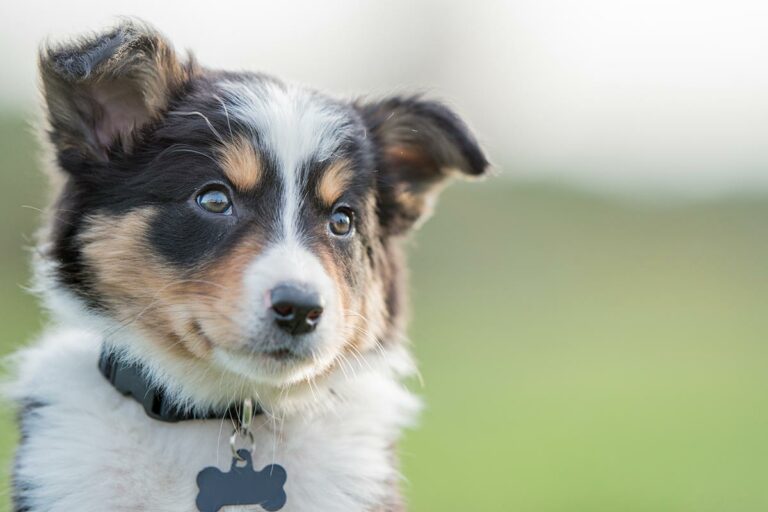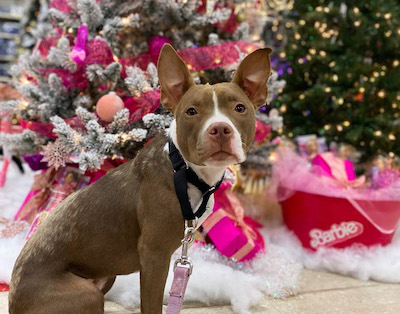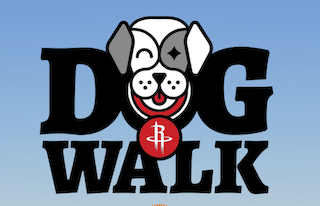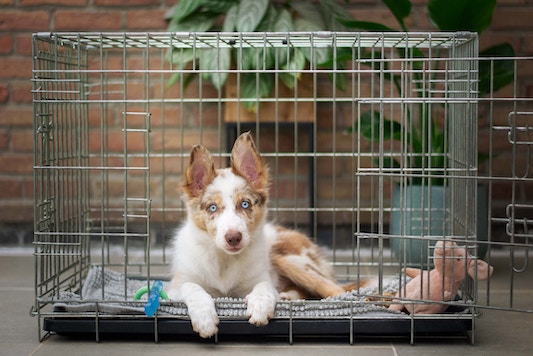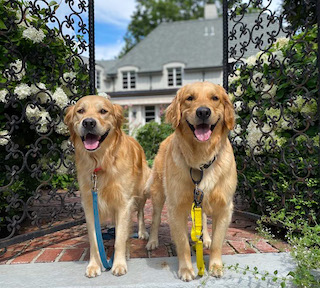Socialization by definition means exposure to the outside world and environmental stimuli. Socialization does not mean interaction per say, and you can successfully socialize your puppy by simply getting them out into the world and around new sights, smells, noises, people, cars, dogs passing and more. If your puppy can safely and have positive physical interactions with people and vaccinated and friendly dogs, even better!
For puppies, the crucial time for socialization happens between 3-12 weeks of age. This is called the Sensitive Period. There are two sensitive phases that occur during this age.
Between 3-8 weeks your puppy is learning so much simply by being around their mom and their littermates. Your puppy is learning things like canine body language, bite inhibition, and exploration. It is important when possible for puppies to stay with their mom and littermates until they are 8-10 weeks of age so that they can learn proper canid social skills and they are less likely to be predispositioned to potential behavior concerns such as aggression or separation anxiety.
The second sensitive period is more directly linked to humans and the outside world, and it occurs between 5-12 weeks of age. As your puppy begins to explore their surroundings, how the interaction is perceived by the puppy (positive or negative) and the amount/length of exposure they have both directly impact their development. To ensure your puppy is achieving enough socialization, we recommend owners to aim to see 30-40 dogs and people per week and 1-2 new locations, however the more the better! Don’t stress if you can’t achieve these numbers each week. They are a general guideline that we find makes it a bit more manageable and tangible to achieve. They are a good goal!
How do I safely socialize my puppy?
This is the burning question. We know puppies can be impacted at this age by several transmittable illnesses prior to having all of their vaccinations, so how do you socialize your puppy without risking their health?
We absolutely recommend reaching out to your vet if you have any questions or concerns, however, we have listed out a few ways our trainers aim to achieve those socialization goals with as minimal risk as possible.
- Go into “Human” dog friendly stores such as TJMax, Ross, Hobby Lobby, etc.
- Go to local dog friendly outdoor restaurants and patios and hold them in your lap
- One-on-one home play dates with friends or family’s vaccinated and friendly dogs
- Walk in the neighborhood and stick to the sidewalk/concrete (as long as it’s not too hot). As an extra safety precaution, don’t allow them into unknown grassy areas or to pick up random items in their mouths. Wipe their paws when you come back inside
Although the highest impact for “socialization” period is over around 12 weeks, and in some cases extends all the way up to 16 weeks, some studies have shown that there may be a second sensitive period that occurs once or twice before adulthood. Adulthood is around 18 months.
When and what should I look out for that could be a concern in my puppy’s behavior?
Even within the socialization period and if you’ve done all you can in socializing your puppy, in some cases you may find that your puppy is already demonstrating behaviors you should be aware of and be keeping an eye on from as early as 3-6 months of age. Behavior can also be genetically determined, and therefore even with proper socialization, you’ll want to make sure to keep an eye out for the following:
- Barking or running away from/nervousness with people coming into the home
- Barking or nervousness on leash in public
- Growling, teeth baring, snarling, snapping, hunkering down that is more intense than just basic puppy play biting. Be on the lookout for this specifically with:
- Placing on collars and harnesses, picking up your dog, or moving them off or from under furniture/kennels
- Around food, toys, items, or when in a comfy spot
If after reading through this and you still have any questions and would like a professional behavior consultant to help with socializing your puppy or to evaluate any concerns, you can contact one of our team members here.
